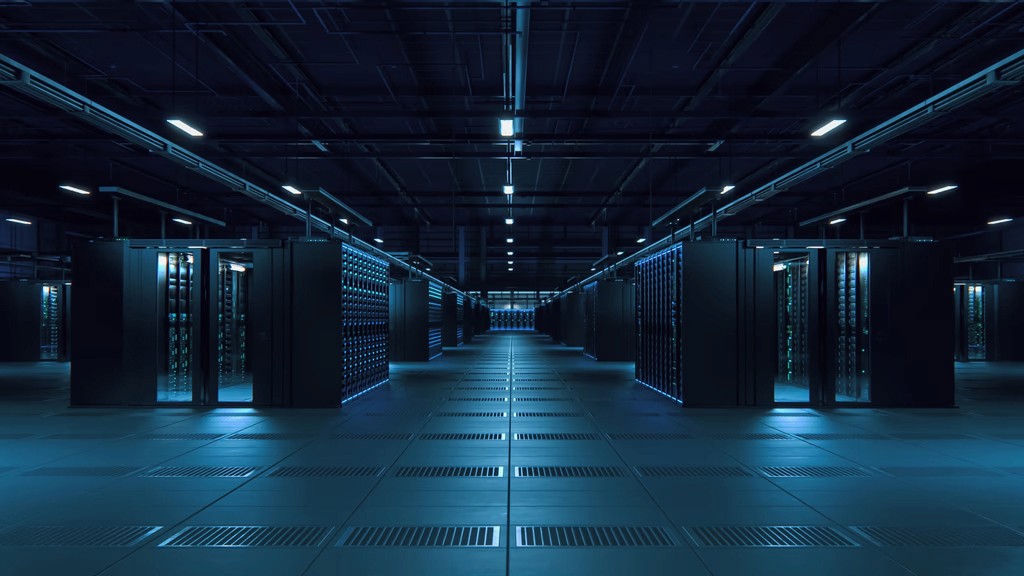October 27, 2025
Deep Green
As a CTO at a UK enterprise, you’ll have a lot of big decisions to make; choosing a colocation data centre for your high-performance computing needs is one of them.
So, what makes the perfect colocation for a UK enterprise? Today, we’re walking you through what services you can expect from your colocation solution, as well as the factors you need to consider before choosing the right provider.
What is a colocation data centre?
Before we get ahead of ourselves, let’s start with the basics. What exactly is a colocation data centre?
Colocation (or colo, if you’re on nickname terms) refers to a data centre where organisations, such as UK enterprises, can rent out space to host their servers. They use these servers to carry out high-performance computing tasks, which, depending on the industry, could be everything from financial modelling to genomic analysis or engineering design.
As for the colocation provider? They provide the necessary services to make the servers run smoothly. They are also in charge of the data centre facility, ensuring it’s secure, properly and efficiently cooled, networked and resilient.
Key services to look out for from your colocation provider
We’ve covered the basics of what a colocation data centre should look like, however there’s more to your perfect colocation solution than a building and some power; make sure these crucial services are also on offer:
High-density rack space: If you plan to carry out high-performance workloads at your enterprise (either now or in the future), high-density racks are essential. Look out for 20kW or more.
Cooling systems: All that compute is bound to get hot, especially when you’ve opted for high-density racks. Your colocation provider should have a water- or fan-based cooling system in place to ensure your hardware stays protected, and it should be able to cope with the extra heat generated by high-performance compute.
Possibility for a hybrid cloud set-up: You don’t want to be tied into a contract with a single data centre, especially if you already have existing cloud providers. A flexible integration via carrier-neutral cross-connects is crucial.
Installation and ongoing support: On-site technicians will help get your hardware up and running, then keep your servers functioning smoothly by troubleshooting any problems.
On-site security: Combining physical security with CCTV, your hardware should be well-protected on all fronts
Energy provider: You know a data centre needs power, but let’s get specific. Is the energy that’s running your servers renewable? If so, is it wind, hydrogen, solar, or something else entirely?
Sustainability reporting: Knowing the type of energy is crucial for your sustainability reporting. Other key metrics include Power Usage Effectiveness (PUE), Energy Reuse Factor (ERF) and Water Usage Effectiveness (WUE) ratings. Your colocation solution should provide this data so you can stay on track with ESG goals and Scope 1-4 emissions reduction.
Heat reuse: When your servers are up and running, they’ll emit a whole lot of heat. Most data centres let that go to waste. Look for a colocation provider that connects its excess heat to the district heating network. This reduces cooling costs, improves PUE, and helps local communities by donating free heat.
Check out Deep Green’s latest heat reuse project
Factors to consider when choosing your colocation solution
So now you know what services to look out for, but what factors should you weigh up before deciding on a data centre company? We’re sharing some advice from Deep Green’s very own Alastair Clegg (you can call him Ali) to help you make your collocation choice.
Price
Unlike public clouds, which usually have a pay-as-you-go pricing model resulting in fluctuating costs, fixed-cost colocation makes it easier to manage your compute budget. What’s more, colocation data centres with heat reuse models save on cooling costs, making them especially budget-friendly for enterprises.
Scalability
Your enterprise is aiming for growth, and you don’t want to set up a whole new compute system just because your needs have expanded. “If an enterprise has an initial resource capacity allowance, they could grow that over time by taking more space, more power and putting more kit in a colocation data centre,” Ali says.
Density
Scaling your HPC means you’ll need higher-density racks. So, opt for a colocation provider who’s ready to deliver on high density (20kW or more), and who has the cooling system in place to handle all that power. Some data centres might need to completely re-fit their cooling systems when you want to up your compute needs, leading to unnecessary delays.
Sustainability
For sustainable colocation data centres, using renewable energy should be standard. But you might well need more than renewables to meet the E in ESG, and keep your scope 4 emissions low. Look for a data centre which shares heat with district heating partners, which also improves ERF and PUE metrics compared to the average data centre.
Location
Keeping your colocation provider close to home is more important than you might think. “You can send people out if there’s an issue; your team can physically touch their servers,” Ali says. So if your HQ is in Manchester, opt for Manchester colocation. Data sovereignty is also a key consideration. “Keeping your critical data in the UK means it’s very accessible,” Ali adds.
Deployment speed
There’s nothing more frustrating than waiting months or even years to get your servers up and running. Make sure to choose a colocation solution that can kick-start in a matter of weeks. High-density rack readiness is crucial here; otherwise, “it could take months and months to deploy because the data centre would have to re-engineer their cooling environment for high-density,” Ali explains.
The ideal colocation data centre will support your enterprise’s growth
Besides providing a physical location for your servers and the necessary power, your perfect match colocation solution is one that fits your budget, keeps your sustainability metrics on target, and can scale as you grow. Want to learn about Deep Green’s unique colocation approach?




